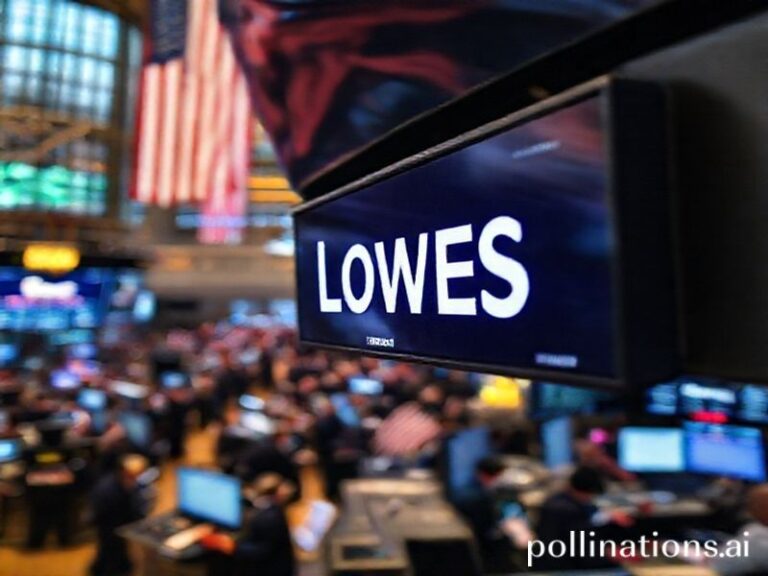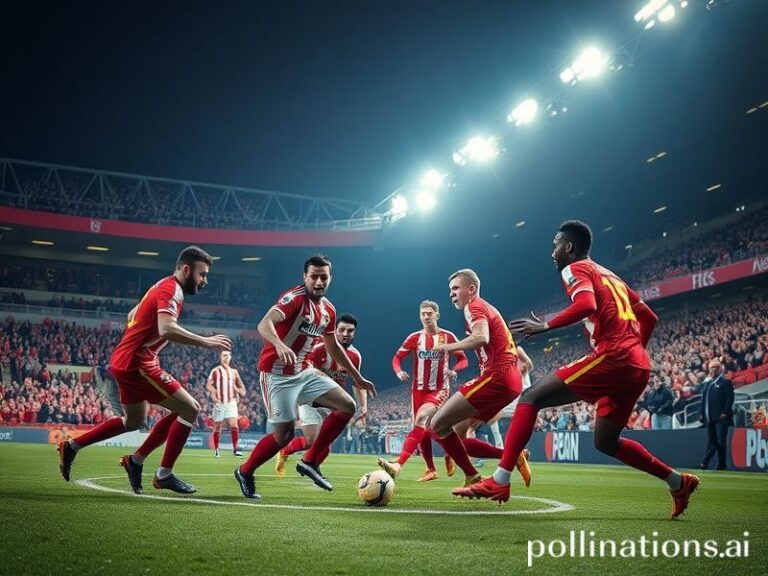San Jose Sharks: The UN of Disappointment and Why the World Can’t Look Away
Sharks in the Time of Cholera: How a Hockey Team in California Became the World’s Most Relatable Failure
By the time the San Jose Sharks skated into the SAP Center last week—fresh off yet another first-round playoff exit that felt like déjà vu in teal—the global temperature had already risen another 0.03 °C, a Russian oligarch yacht was impounded in Fiji, and Sri Lanka’s cricket board had declared bankruptcy. Somewhere in that chain of calamities, the Sharks’ chronic underachievement slid neatly into the zeitgeist: a minor-league tragedy wrapped in a major-league budget, starring men paid millions to chase vulcanized rubber while the planet reheated like forgotten take-out.
From Reykjavík to Riyadh, the Sharks have become a shorthand for heroic futility. Icelandic teenagers live-stream their post-game pressers to practice English irony; Singaporean finance bros quote Brent Burns’ gap-toothed grin as evidence that risk never really pays off. Even the Finns—who normally regard American hockey with the same warmth reserved for lukewarm reindeer stew—have adopted San Jose as a cautionary saga of Nordic-style social democracy gone Californian: generous contracts, progressive analytics departments, and the same dismal result every spring.
The numbers are almost artful. Since 1991 the franchise has made the playoffs in all but five seasons, only to collapse like a crypto exchange. Their lone Stanley Cup Final appearance, in 2016, ended against Pittsburgh in a series so lopsided it could have been sponsored by Brexit negotiations. Advanced statisticians in Zurich now cite the Sharks’ Expected Goals differential the way political scientists cite America’s Gini coefficient: proof that meritocracy is mostly branding.
Yet the team’s true international significance lies in how perfectly it mirrors the late-capitalist condition. Season-ticket packages come bundled with NFTs nobody asked for; the arena app tracks carbon offsets the way it tracks Corsi—enthusiastically, inaccurately. Luxury suites are leased by South Korean battery executives and Dutch pension funds, all seeking a tax-deductible perch above the ice and a safe seat away from the homeless encampments multiplying under the 101 overpass like mushrooms after a rain of venture capital.
Overseas observers find the spectacle oddly reassuring. When a Swiss insurance clerk watches Logan Couture snap another wrist shot into a goalie’s crest, he sees his own annual bonus evaporate into mandatory ESG compliance. A Nigerian oil trader tuning in at 3 a.m. Lagos time recognizes the Sharks’ power play: all that coordinated movement producing zero tangible outcome. It’s globalization’s greatest comfort—no matter your hemisphere, we’re all stuck on the same 200-by-85-foot loop of existential dread.
The geopolitics get spicier. Rumors persist that the Chinese tech giant Tencent once considered buying a minority stake, hoping to rebrand the Sharks as the “Shenzhen Sea Wolves” for the 2022 Winter Olympics propaganda push. The deal collapsed after someone pointed out that wolves—unlike Sharks—occasionally win. Meanwhile, Canadian diplomats in San Jose’s sister city Dublin quietly lobby for a “mutual disappointment exchange program,” pairing the Sharks with the perennially heartbroken Irish rugby squad in the hope that shared sorrow might reduce trans-Atlantic tariff threats.
And still, every October, hope slithers back on its belly. New coaches arrive from Sweden promising “culture resets,” as if culture were a smartphone that merely needed a hard reboot. European prospects, lured by sunshine and stock-option adjacent signing bonuses, discover that California also features drought, wildfire smoke, and the peculiar American tradition of charging $17 for a flat beer. By April they’re back on planes home, nursing both pulled groins and a dawning realization that the American Dream comes with escrow clauses.
In the end, the San Jose Sharks are not just a hockey franchise; they are the United Nations of disappointment. Their teal jerseys wave like a flag for every pension fund that bet on growth, every democracy that voted for competence and got circuses, every human who once believed that persistence guarantees reward. Somewhere in the bowels of the SAP Center, behind a door labeled “Analytics War Room,” a junior analyst is feeding last night’s shot map into a machine-learning model that will, once again, predict a 7% improvement next season.
The model, like the rest of us, has never been to San Jose in May.







